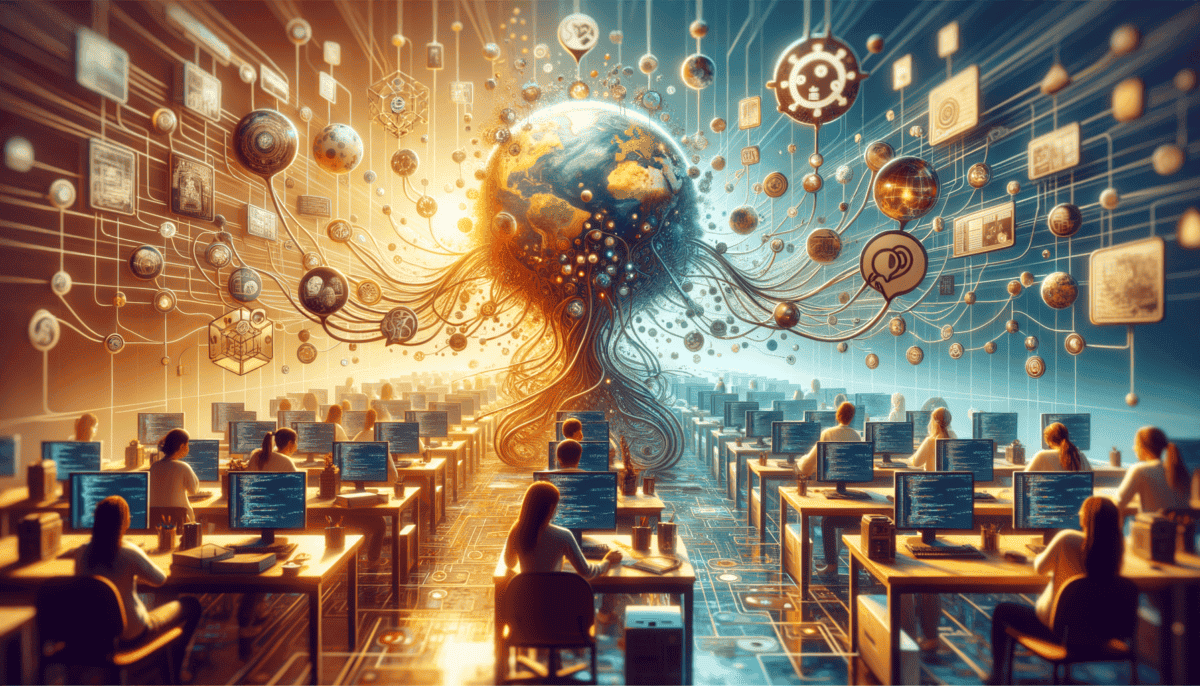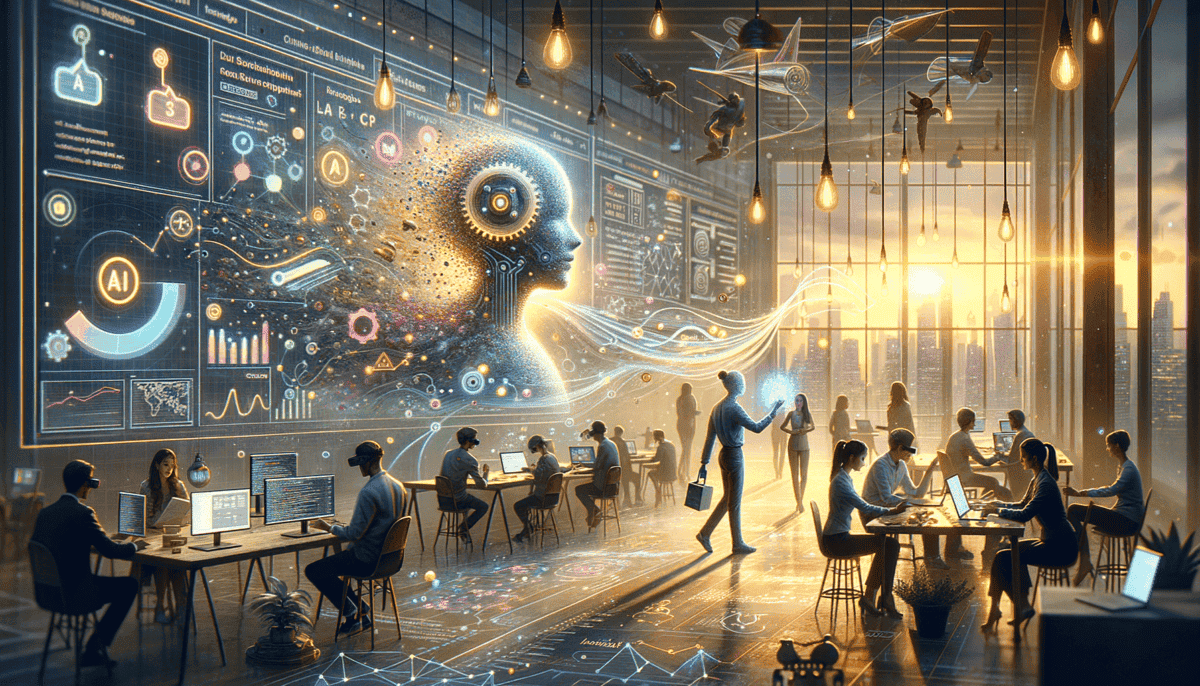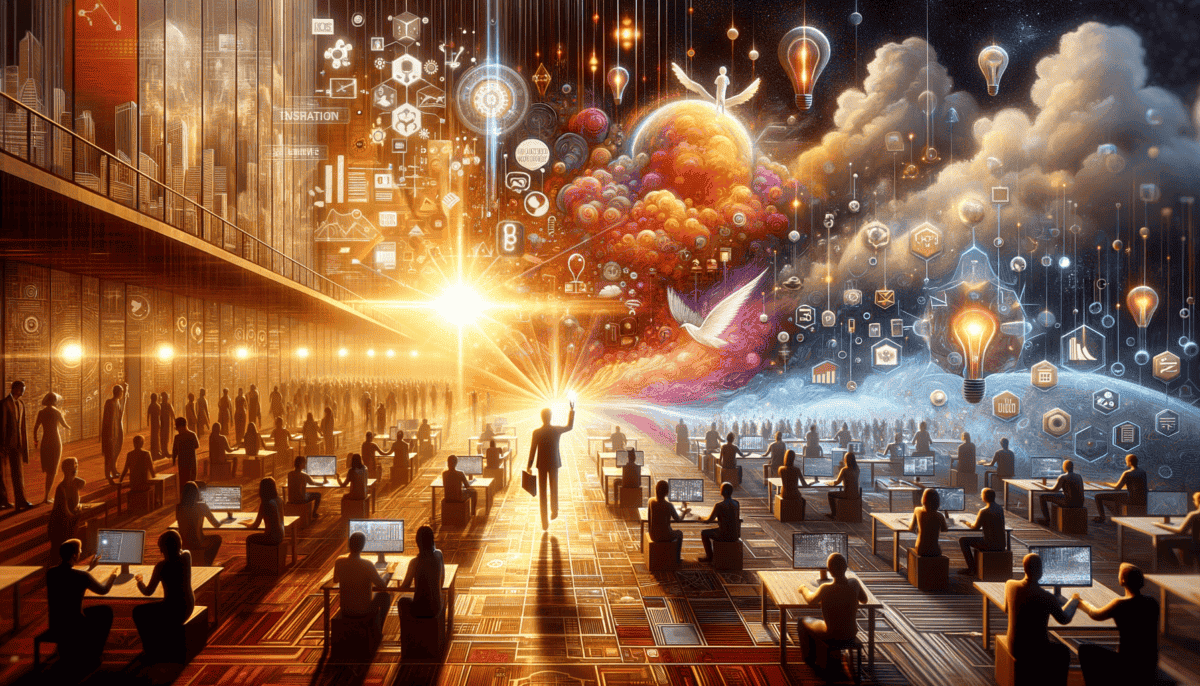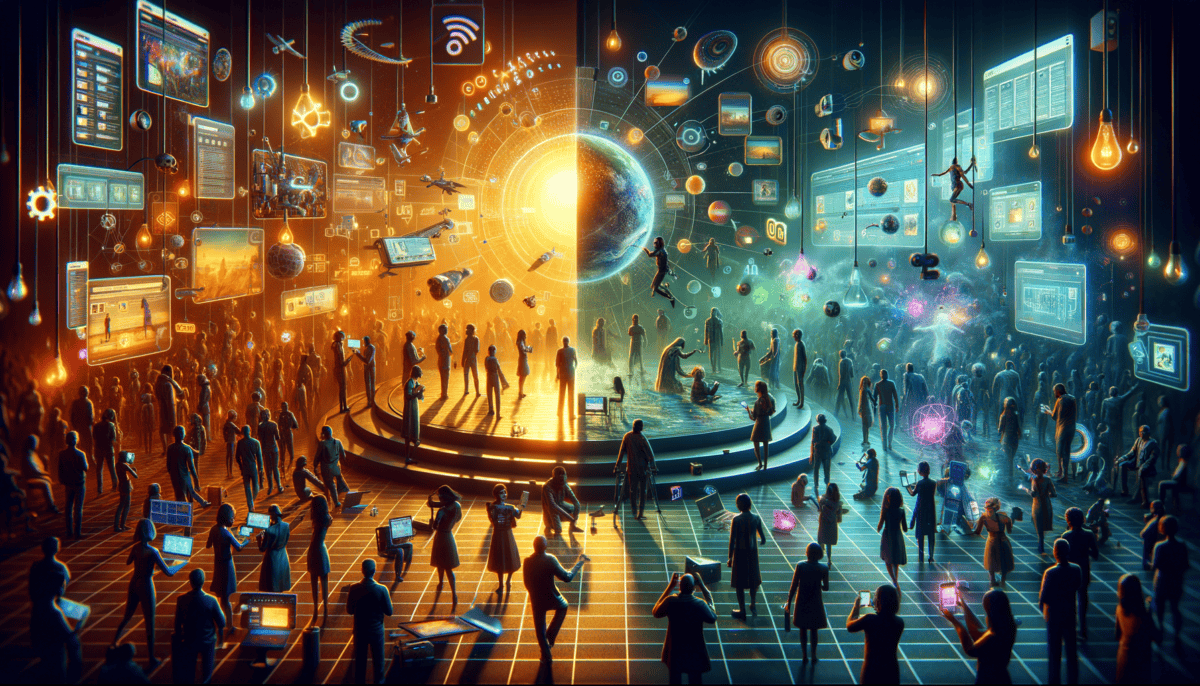The Birth of a Digital Dream
The cold winter wind whistled through Harvard's campus as Mark Zuckerberg sat in his dorm room. His fingers flew across the keyboard, typing faster than most people could think. The year was 2004, and Mark had a big idea.
"This could change everything," Mark whispered to himself, his eyes glued to the glowing computer screen. He wasn't just making another website – he was building something special.
Eduardo Saverin, Mark's best friend, leaned over his shoulder. "What are you working on now?" he asked.
"I want to help people connect with their friends online," Mark explained. "Like a digital yearbook, but better. Way better."
The room was small and messy, with pizza boxes stacked in the corner and energy drink cans scattered around. But Mark didn't care about the mess. He cared about his dream.
The First Steps
Mark stayed up late many nights, typing and thinking. He wanted to make something that would help college students find their friends online. It started with a simple idea:
• Create profiles
• Add friends
• Share photos
• Write messages
"It's going to be called 'The Facebook'," Mark told his friends. They looked confused at first, but soon they got excited too.
Within just 24 hours of launching, hundreds of Harvard students signed up!
Growing Bigger
Word spread fast across Harvard's campus. Students loved being able to see their friends' profiles and connect online. Soon, other colleges wanted to join too.
"Mark, this is getting huge!" Eduardo exclaimed one day, looking at the growing numbers of users.
Mark nodded, his eyes bright with excitement. "But it's just the beginning. We need to make it better, faster, bigger."
“The thing that we are trying to do at Facebook is just help people connect and communicate more efficiently.” – Mark Zuckerberg
The Big Decision
As Facebook grew, Mark faced a tough choice. Should he stay in school or focus on his website full-time? More and more people were joining every day.
One night, while staring at his computer screen showing thousands of new users, Mark made his decision. He would leave Harvard and move to California to grow Facebook.
"This isn't just about college anymore," he told his friends. "This is about connecting everyone, everywhere."
The dorm room that once held just a dream now held the beginnings of something much bigger. Mark packed his bags, ready to start the next chapter of his adventure.
His friends watched as he loaded his computer into his car. Nobody knew it then, but that small dorm room project would grow into one of the biggest companies in the world.
The story of Facebook was just beginning, and Mark's journey from college student to tech leader was about to take off. His dream of connecting people online was becoming real, one click at a time.
Growing Beyond Campus Walls
The California sun blazed through the windows of Facebook’s first real office – a small house in Palo Alto. Mark and his friends had traded their college dorm for this new home base. The air buzzed with excitement!
“Check this out!” Dustin Moskovitz called from his laptop. “We just got our millionth user!” High-fives echoed through the room.
New Friends Join the Team
The tiny team needed help to handle all the new people joining Facebook. Sheryl Sandberg, a smart leader from Google, joined to help run the business.
“We need to think bigger,” Sheryl said during her first team meeting. “This isn’t just for college kids anymore. This is for everyone.”
Mark nodded eagerly. “Let’s make it easy for families to stay in touch. For old friends to find each other again.”
“Facebook was not originally created to be a company. It was built to accomplish a social mission.” – Mark Zuckerberg
Making Facebook Better
The team worked hard to add new features that people would love:
• Photo sharing
• News Feed
• Messenger
• Like button
• Friend suggestions
People loved seeing updates from their friends and family all in one place!
Growing Pains
But growing so fast wasn’t always easy. Sometimes the website would crash because too many people were using it at once.
“We need bigger computers!” Mark announced one day. “And more of them!”
Going Global
Soon, people from all over the world wanted to join Facebook. The team worked to translate the website into many languages.
“Look!” said Mike Schroepfer, the tech chief. “We have users in China, Brazil, India – everywhere!”
Mark smiled as he looked at a map showing Facebook users around the world. His college project was now connecting millions of people across the planet.
A New Kind of Company
“Remember when we worked from that tiny house?” Eduardo asked during a team celebration.
“Now look at us,” Mark replied, gesturing to their big office building. “But we’re still just getting started.”
The team had learned important lessons about growing so quickly:
✨ Listen to what users want
Move fast but be careful
Think about the future
✨ Keep making things better
As the sun set over Silicon Valley, Mark looked out his office window. The small dorm room dream had grown into something huge. But there were still more ways to connect people, more problems to solve, and more amazing things to build.
Something new and exciting was coming – artificial intelligence would soon change everything about how people used Facebook. The team couldn’t wait to see what would happen next.
When Computers Learn to Think
The Facebook offices were buzzing with a new kind of energy. Mark walked into a room full of excited engineers huddled around computer screens.
“We did it!” called out Joaquin Quiñonero Candela, the AI team leader. “The computer can now understand pictures!”
Teaching Computers New Tricks
“Watch this,” said Jenny, a young engineer. She uploaded a photo of her puppy. Within seconds, the computer wrote: “A small brown dog playing with a red ball.”
Mark’s eyes lit up. “This changes everything! Now we can help people find the photos they want much faster.”
“We’re teaching computers to see the world like humans do!” – Jenny smiled proudly.
Making Facebook Smarter
The team worked on cool new AI features:
Face recognition to tag friends
Smart news feeds that show what you like
Better ads that match your interests
️ Translation between languages
Friend suggestions you’ll love
Keeping People Safe
“With great power comes great responsibility,” Mark told his team during a morning meeting. “We need to protect people’s privacy.”
Sarah, the privacy expert, nodded. “Let’s make sure people can choose what they share and who sees it.”
The team created special rules to keep everyone’s information safe:
• Ask permission before using face recognition
• Let people control their privacy settings
• Keep personal information secure
• Be clear about how AI works
AI Helps People Connect
“Look at this!” Maria from the language team called out. She typed “Hello” in English, and the AI quickly translated it into 50 different languages.
“Now people can talk to friends anywhere in the world,” she beamed. “The AI helps them understand each other!”
Learning and Growing
Sometimes the AI made mistakes. It might show the wrong ads or miss things in photos. But the team kept working to make it better.
“Each mistake helps the AI learn,” explained Tom, pointing to his screen. “Just like how kids learn from their mistakes.”
“The more people use Facebook, the smarter our AI becomes!” – Mark told visitors.
As night fell over the Facebook campus, the AI computers kept working, learning from billions of posts, photos, and conversations. The team had taught computers to see, read, and understand – but this was just the beginning.
Mark walked through the quiet office, thinking about what came next. The AI revolution had started, and it would soon lead Facebook toward an even bigger change – one that would take them far beyond social media into a whole new digital world.
Beyond Social Media
On a crisp October morning in 2021, Mark stood on a big stage. His heart was racing. He was about to share his biggest dream yet.
“Facebook is now Meta!” he announced with a bright smile. The room filled with gasps and whispers.
A New Digital World
“Imagine putting on special glasses,” Mark said, holding up a sleek headset. “You can play games in 3D, visit friends far away, or go to school – all in a virtual world!”
He showed everyone a video of people playing together in colorful digital spaces. They were swimming with dolphins, dancing on the moon, and drawing pictures in the air!
“We’re building a place where anything is possible!” – Mark explained excitedly.
Making Dreams Real
In the Meta labs, scientists and artists worked together on cool new things:
️ Comfy VR glasses that feel light as feathers
Games that you can feel and touch
Digital hands that move like real ones
Worlds more colorful than rainbows
Ways to hang out with friends in 3D
Learning New Ways to Play
“Try this!” said Lisa, a Meta designer. She helped Mark put on a VR headset. Suddenly, he was standing on top of a mountain!
“Wow!” he laughed, reaching out to touch a digital butterfly. “It feels so real!”
The team created amazing experiences:
• Virtual art classes where you paint in the sky
• Digital concerts where you dance with friends
• Games where you become a superhero
• Classes where you can visit ancient Rome
Bringing People Together
“Look what happens when I do this,” smiled Tom, pressing a button. His digital self appeared in a virtual room with friends from all over the world.
“Now we can have birthday parties together, even if we’re far apart!” he grinned.
Growing and Learning
Building this new digital world wasn’t easy. Sometimes the virtual things didn’t work quite right. The glasses could feel heavy, or the pictures might look blurry.
“We learn from every try,” Sarah from the tech team said. “Each day it gets a little better!”
“We’re building tomorrow’s world today!” – The Meta team loved to say.
As the sun set outside the Meta offices, Mark watched his team working hard on their dream. They were making a new kind of internet – one where people could do anything and go anywhere.
But as exciting as the metaverse was, it also brought new questions about privacy and safety. The team knew they had to be extra careful as they built this amazing new world.
Facing Big Challenges
The world was watching Meta closely. More people than ever were using Facebook, Instagram, and WhatsApp every day. But with great power came big responsibilities.
Safety First
“We need to keep everyone safe online,” Sarah said during a morning meeting. She was in charge of making sure people’s information stayed private.
The team worked hard to fix problems:
• Making sure bad people couldn’t steal information
• Helping kids stay safe online
• Stopping mean messages
• Protecting photos and videos
Learning from Mistakes
“Remember when our apps stopped working last year?” Tom asked. “That taught us we need better backup plans.”
Mark nodded. “We have to do better. People count on us to stay connected with their friends and family.”
“Every problem is a chance to get stronger!” – The team’s new motto
Making New Rules
“Different countries have different rules,” Lisa explained. She showed a map with colorful pins. “We need to follow all of them!”
Listening to People
Meta started having special meetings where people could share their worries:
“My grandma doesn’t understand how to use the new features,” one person said.
“I want to know who sees my posts,” another added.
The team took notes and made changes to help everyone feel safe and happy.
Building Trust
Mark spent lots of time talking to people about their concerns:
“We want to be open about how things work,” he said. “No more secrets or confusing rules.”
Growing Stronger
Even when things got hard, the team kept working to make things better:
“Look!” Sarah showed everyone a chart. “More people say they feel safe using our apps now!”
Tom smiled. “And they’re having more fun too!”
The team celebrated small wins while planning for bigger challenges ahead. They knew that keeping billions of people connected safely wasn’t easy, but it was worth every effort.
“When we work together, we can solve any problem!” – Mark told his team
Outside the Meta offices, the sun was setting on another busy day. But inside, lights still glowed as the team worked to build a better, safer digital world for everyone.
Building Tomorrow’s World
The Meta team gathered in their bright new office. Excitement filled the air as Mark walked to the front of the room.
New Dreams
“Remember when we started in a college dorm?” Mark smiled. “Now look at what we’re building!”
Sarah jumped up from her seat. “Show them the cool new thing, Mark!”
Mark put on special glasses. Suddenly, he could see magical digital butterflies flying around the room. Everyone clapped and laughed.
Making Magic Real
“With our new technology, you can:
• Visit friends anywhere in the world
• Learn new things in fun ways
• Play games in magical worlds
• Create art with just your thoughts
“Technology should bring people closer, not push them apart!” – Sarah’s favorite saying
Helping Everyone
Tom showed pictures of kids using Meta’s new learning tools. “Look how much fun they’re having while learning math!”
Keeping Promises
Lisa stood up next. “We promised to keep people safe, and we’re doing it!”
She showed how new AI helpers watch for bad stuff and stop it before anyone gets hurt.
Making Friends Everywhere
“Our translation AI lets kids make friends all over the world,” Mark explained. “It’s like magic – you speak English, they hear Chinese!”
Everyone watched a video of children from different countries playing together in virtual parks.
The Best is Yet to Come
As the team looked at their plans for the future, they felt proud of how far they’d come.
“We started by connecting college friends,” Mark said softly. “Now we’re connecting the whole world.”
“Every day we make the impossible possible!” – The team cheered together
Outside, stars twinkled in the evening sky. Inside, the Meta team dreamed of tomorrow’s adventures. They knew their journey was just beginning.
From a small idea in a college room to a company that helps billions of people, Meta’s story shows that dreams can come true when you work hard and care about helping others.
As Mark looked at his team, he smiled. The future was bright, full of new friends to make and new worlds to explore. And they would build it together, one magical moment at a time.






